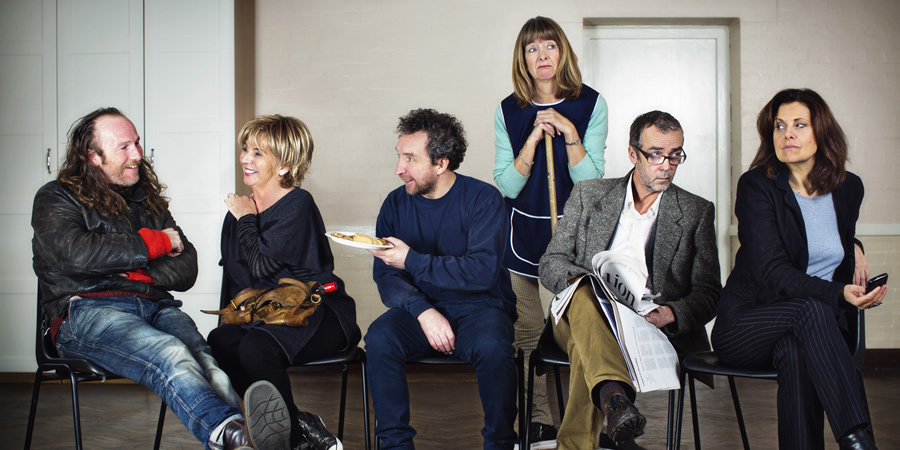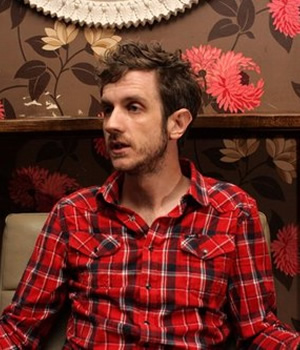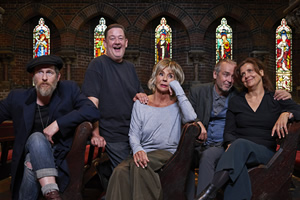Pete Jackson interview

We talk to Pete Jackson, the creator of Radio 4's Love In Recovery, a comedy set around an Alcoholics Anonymous group. The show is about to start its second series...
How would you describe Love in Recovery?
A comedy drama set in AA. I prefer saying it's set in AA rather than about AA, because it's not about the workings of Alcoholic's Anonymous as much as it's just about some very different people who happen to have one very big thing in common. And it's a comedy drama because it's funny and sad, and silly and tragic and trivial and important, and all the things that AA is - and life, really.
You've been to AA yourself - how much of this show is based on your own experiences of those meetings?
Nothing specific. But something I found interesting and that helps the writing of the show is the fact that AA allows people to open up about themselves in a very honest, very raw and very un-English way. It's a great opportunity to get to the heart of characters and relationships in a way that's not often possible anywhere else.
AA doesn't seem like the funniest of places to set a comedy - how do you make jokes about alcoholism?
To be honest, I don't really. It's not a show that pokes fun at alcoholism at all, but I reckon comedy is often about flaws and these people happen to have some pretty massive flaws. This is a really dry and boring answer, but I always think the best way to write comedy is to start with the truth: create real, rounded, human characters; and then just allow them to be funny. Because people are; sometimes intentionally, often not.
You've got an amazing cast - how did you convince them to sign up?
I still don't know! They were the dream cast and we thought 'we may as well have a go at getting them' before we went down the list and eventually ended up with me, someone from Big Brother and my auntie Nora. But then they all said yes (the cast, not auntie Nora) and they're all utterly utterly brilliant and a total joy to work with, and they bring layers and nuances to the script that weren't put there by me (though of course I always take total credit for it). Oh actually, my auntie Nora does turn up in Episode 6.

Tell us more about their characters...
Eddie Marsan plays the sweet but sometimes a bit simple group leader. Sue Johnston plays Julie, who's been known to have the odd relapse here and there, and everywhere. John Hannah plays Simon, a snarky and snide journalist who spends most of his time making digs at the others but who really wouldn't want to be anywhere else, even though he's not really an alcoholic. Paul Kaye plays Danno, a thoroughly dodgy geezer who's sweet and wise and who's got a few big secrets. Rebecca Front plays the snobby and guarded Fiona, who used to be a banker and had it all, and then lost the lot. And Julia Deakin plays the cleaner Marion, who lives to wind Andy up by pretending not to know who he is every week.
It's a pretty eclectic group of characters, but that's the mad thing about AA. You end up meeting all sorts of different people, and becoming friends with them, and relying on them, and trusting them with things that you've never even trusted your closest friends and family with.
The show sounds very 'real' - how did you record it?
We took our wonderful, talented and very busy A-list cast and stuck them in a tiny, grotty little room in a church hall for a week, sitting in a little circle with a microphone in the middle. Which sounds simple, but the job that the cast, producer/director Ben Worsfield and the sound recordist Jerry Peal do in getting the show right is really remarkable I think. They make it so full of texture and detail, and always totally believable.
It helps that the church hall we record in is actually used for AA meetings, I think - because it just sounds right - the door's knackered, there's a load of noise coming in from the street outside (sometimes at inappropriate moments, like a laugh in the middle of someone's sad story), the chairs are creaky, there's sometimes a gospel choir rehearsing downstairs. Detail that you wouldn't dare to put in deliberately but that sounds great when it just happens at the right moment.
You only had 15 minute episodes for Series 1 - this time you've got half hours. How has that affected the series?
It's allowed us to tell more complicated and layered stories. The first series was mainly the stories of how each of them ended up in AA, so for Series 2 we wanted to explore stories that were more immediate, about stuff that was happening to them in the present and will affect their futures.
It also meant we were able to involve guest characters, who can tell stories our main group can't. Samantha Bond (Outnumbered) arrives in Episode 2 and blew us all away as a mother who has an alcoholic daughter. We also have Alex Lawther in Episode 5 (The Imitation Game) who's brilliant as Simon's son.
What was the hardest part of writing the show?
The first ever episode, by a long way. Trying to work out just how the show would work, who the characters were, how they would affect each other, what they bring out in each other. Writing the second series was easier in some ways, despite the stories being more complicated, because by this time the characters were so well established, thanks to the cast, that what they said, did and how they reacted to things was much more instinctive.
Did writing help you through your own experience of alcoholism?
I don't think I'd still be sober, nearly seven years down the line, if I hadn't taken up writing. I don't think I'd have lasted a day. When you take something so all consuming as drink out of your life, you have to replace it with something. I feel very very lucky to have found writing, and to swap a red face and the shakes for a career that I love... Which isn't to say that sometimes I wouldn't throw it all away in a heartbeat just to get wrecked on my own. Drink's a fucker.
What's next for Love in Recovery?
I don't know. Hopefully more. We all talked about how much we'd love to transfer to TV, so hopefully that'll happen at some point. If we did transfer to TV we'd ideally keep the show on radio too, and run them both concurrently. There's so many stories to tell, and so many characters to meet that I personally would love to keep writing it for years.

